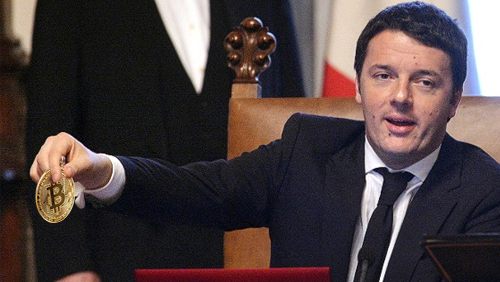There are many factors that could drive the price of bitcoin up. Demonetization, a political upheaval, economic turmoil and even the slightest uncertainty in the global markets may cause the price of the popular digital currency to soar.
 For instance, news of Donald Trump’s U.S. presidential election victory triggered volatility in the markets in November, which, in turn, sent the price of bitcoin soaring above the $700 level. Several weeks before that, it was the Chinese yuan devaluation that caused the digital currency to settle comfortably in the $650 price range.
For instance, news of Donald Trump’s U.S. presidential election victory triggered volatility in the markets in November, which, in turn, sent the price of bitcoin soaring above the $700 level. Several weeks before that, it was the Chinese yuan devaluation that caused the digital currency to settle comfortably in the $650 price range.
Now, another event could send bitcoin crashing through the $800 ceiling.
Italian Prime Minister Matteo Renzi was forced to concede defeat after voters voted “No” to the country’s referendum on constitutional reform, which aims to overhaul the government’s parliamentary system.
Like Brexit, the referendum was also seen as a vote for or against staying in the European Union. And according to experts, Renzi’s defeat could pave the way for anti-EU political faction Eurosceptic Five Star Movement (MS5) to gain power. The party said it will call for another referendum—this one changing the Euro for the Italian Lira—if it gets into office.
So where does bitcoin fit into all of these?
Experts have long been advocating bitcoin as a “safe haven” asset—one that “benefits in times of macroeconomic uncertainty in which its strengths as an investment vehicle whose value is derived solely from a global market are best on display.” And this was shown during Brexit, when the value of bitcoin rose while the UK pound dropped by as much as 6.44 percent against the euro and 10 percent against the U.S. dollar. In comparison, bitcoin was up by 7 percent, “adding gains to a rally that started as the UK went to the polls” during the Brexit vote.
Current bitcoin price and trade volume
The price of bitcoin rose to $757.87 during Tuesday morning’s trading, with a trade volume of $24.56 million.